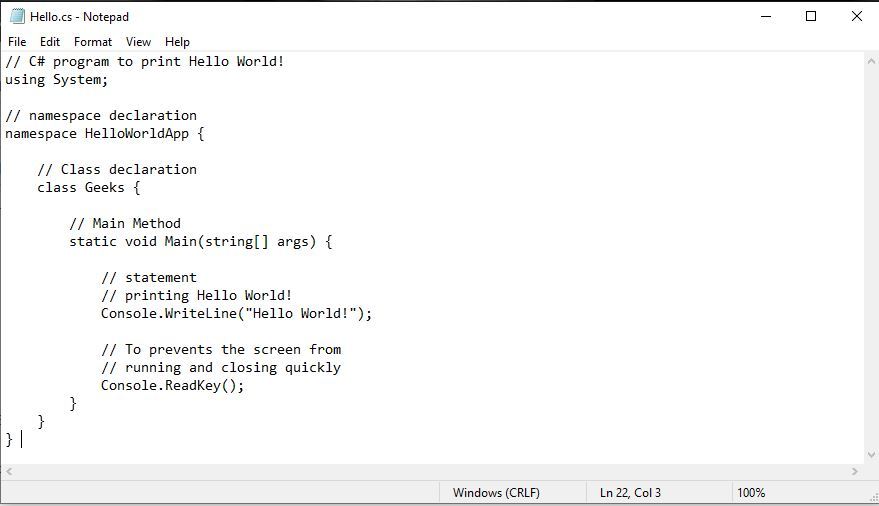

- #Compile c program in dos number manual#
- #Compile c program in dos number registration#
- #Compile c program in dos number code#
", plugins = "debug", verbose = TRUE, rebuild = TRUE ) mistake ( )
#Compile c program in dos number code#
The following code registers the add_() function defined above: A pointer to the function, cast as DL_FUNC (i.e. a dynamically.R_RegisterCCallable() has three arguments: This function is called automatically when the “mypackage” DLL is loaded.
#Compile c program in dos number registration#
Function registration should be done in a function called R_init_. To register a function, call R_RegisterCCallable(), defined in. As we’ll see below, a user-friendly package will do both these tasks, so users of the package can ignore the details and simply include a header a file. C() C functions, but are beyond the scope of this book. Call() C function, you get a pointer to it with R_GetCCallable(). Call() C function, you register it with R_RegisterCCallable(). R solves this problem using function registration.
#Compile c program in dos number manual#
This need for relocatable DLLs adds a few more steps to the job of importing and exporting C code for R packages (the same problem arises for C++, but Rcpp attributes automate the manual steps described below). Instead, they get binaries from CRAN that can get installed in many different places.

This is because most R users don’t build packages from source. R packages need to provide DLLs that can be relocated DLLs that work regardless of where they live on disk. (The R API is designed so that these conversions often don’t require copying.) The following table lists the functions that convert length one R vectors to and from C scalars: A C function typically starts by converting SEXPs to atomic C objects, and ends by converting C objects back to a SEXP. SEXP, short for S expression, is the C struct used to represent every type of object in R. Here’s the bare minimum you need to know: C functions that talk to R must use the SEXP type for both inputs and outputs. A number of exported functions are not documented, so you’ll also need to read the R source code to figure out the details. After that, read “ The R API” in “Writing R Extensions”. I’d recommend starting with my notes at R’s C interface. Unfortunately this API is not well documented. These headers allow you to access R’s C API. The default just gives you access to the “public” internal API, which is both necessary and done for safety’s sake. On top of that, doing so doesn’t actually give you access to the “internal” internal API unless you set some additional flags. You should neverīuild a DLL (dynamically linked library) and make it available to R. R, and creates src/RcppExports.cpp and R/RcppExports.R. One, it generates the code needed to make the function available in Set up your R environment to compile code and warn you if you’re missingĬall Rcpp::compileAttributes(). Run timesTwo(10) from the console to check that it works.īehind the scenes, “Build and reload” is doing a lot of work for you. Slower, “Build & Reload” which installs the package then restarts R. Because you’re loading and unloading C code, the chances ofĬorrupting memory are high, and you’re better off with the safer, but

You canĬontinue to use the standard devtools::load_all() process but it is more Generate the necessary modifications to your NAMESPACE by documentingĬlick Build & Reload in the build pane, or press Ctrl/Cmd + Shift + B. Two most important parts are the header #include, and the special It includes a basic function and some instructions to get started. You can // source this function into an R session using the Rcpp::sourceCpp // function (or via the Source button on the editor toolbar) // For more on using Rcpp click the Help button on the editor toolbar // ] int timesTwo( int x) #include using namespace Rcpp // Below is a simple example of exporting a C++ function to R.


 0 kommentar(er)
0 kommentar(er)
